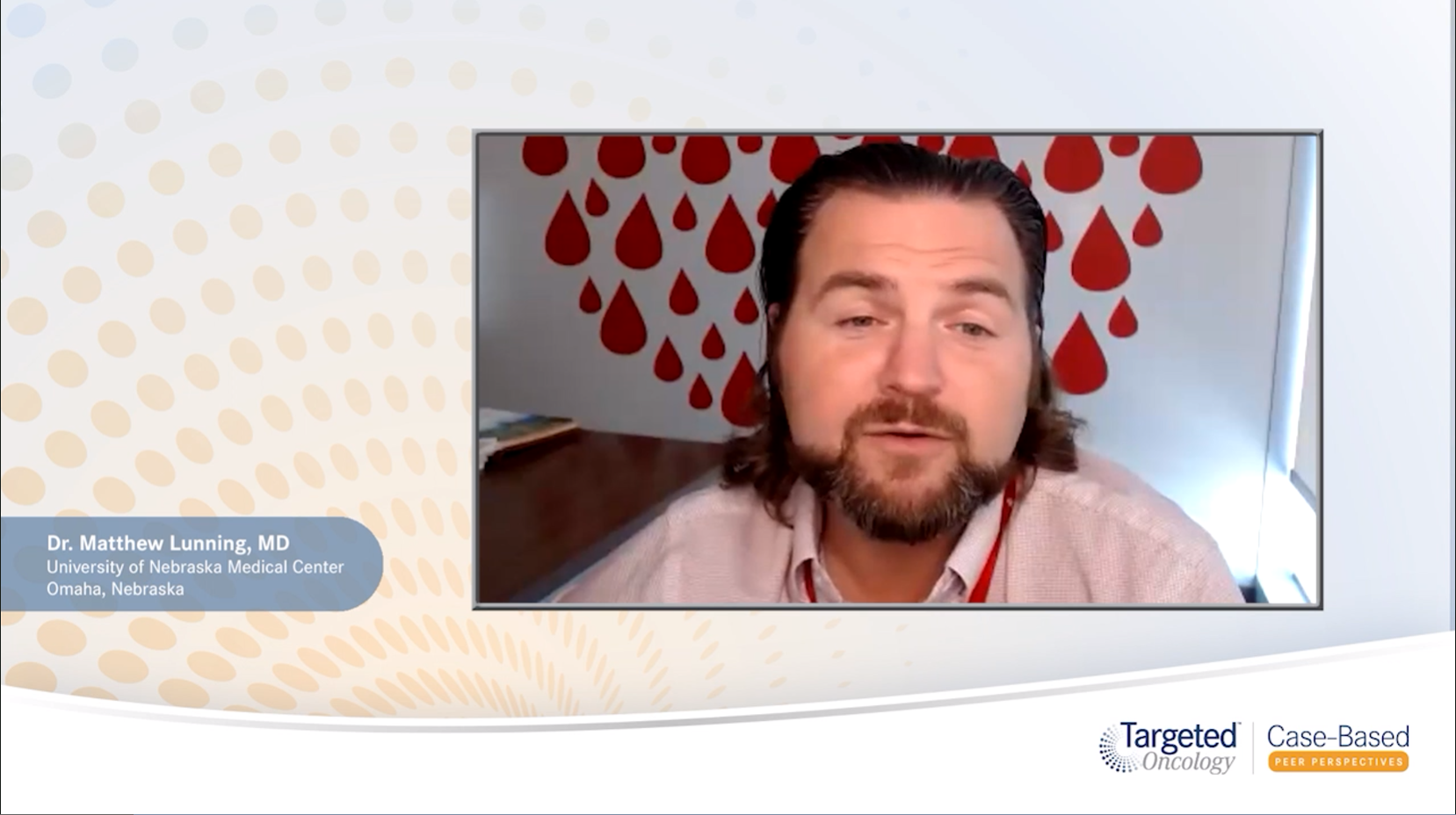FDA Approves Subcutaneous Epcoritamab for Previously Treated R/R DLBCL
The FDA approved the use of subcutaneous epcoritamab for patients with relapsed/refractory diffuse large B-cell lymphoma.

The FDA has approved the use of subcutaneous epcoritamab (Epkinly) for the treatment of patients with relapsed/refractory (R/R) diffuse large B-cell lymphoma (DLBCL) after 2 or more lines of systemic therapy.1
"The biggest impact of this drug is that is can be given to the community setting. It does not necessarily have to be given in a specialized registered center like chimeric antigen receptor [CAR] T-cell therapy does. So, this gets it into hands of more physicians, which hopefully gets into the treatment algorithm for more patients, Tycel Phillips, MD, associate professor, Division of Lymphoma, Department of Hematology & Hematopoietic Cell Transplantation told Targeted OncologyTM, in an interview.
Findings from the from the LBCL cohort of the open-label, multi-center phase 2 pivotal EPCORE NHL-1 (NCT03625037) supported this approval, showing that subcutaneous epcoritamab had deep and durable responses in this patient responsibility.2 This cohort met its primary end point of a confirmed overall response rate (ORR) of 61%, with 38% of those responses being a complete response [CR]. The median duration of response in this cohort was 15.6 months. The EPCORE NHL-1 cohort included 148 patients with R/R LBCL who were heavily pretreated and had an ECOG performance status of 0-2 with detectable disease on PET scan.
Updated findings, presented at the annual European Hematology Association in 2022, showed that among 157 patients that ORR was similar across prespecified subgroups based on age, prior lines of therapy, and de novo or transformed disease.3 Moreover, they found that 61 patients had received prior CAR T-cell therapy with 75% of those patients progressing within 6 months of their CAR T therapy. Thirty-one patients had a prior transplant with 58% of those patients progressing withing a year of their transplant, and overall 61% of patients on the study had refractory diseasewith 83% of patients refractory to their last line of therapy.
Tycel Phillips, MD

Researchers also looked at responses in patients naïve to chimeric antigen receptor (CAR) T cells or refractory to CAR T cells with an ORR of 60% and 42% CR rate for naïve compared with a 54% ORR and 34% CR rate for those who failed CAR T cells. This trial also showed a durable duration of response of 12 months on epcoritamab at a median follow-up of 10.7 months. However, a median DOR was not met among patients who experienced a complete response but 89% of patients still had a complete response at approximately 9 months.
Secondary end points from the study included incidence and severity of adverse events (AEs), the incidence and severity of changes in laboratory values, incidence of dose delays, and health-related quality of life. 12 patients had treatment-emergent AEs (TEAEs) that led to discontinuation of treatment with 3 being considered treatment related.
Twenty-percent of patients in the trial experienced any-grade TEAEs with the most common TEAEs being cytokine release syndrome (CRS; 49.7%), pyrexia (23.6%), fatigue (22.9%), neutropenia (21.7%), and diarrhea (20.4%). Grade 3/4 TEAEs occurred in 5% of patients and 2.5% of patients had grade 3 CRS. The most common grade 3 or 4 TEAEs were neutropenia (14.6%), anemia (10.2%), decreased neutrophil count (6.4%), and thrombocytopenia (5.7%).
"I think the biggest thing moving forward is the community physicians and those who have not prior experience with biospecifics, or CAR T, getting adjusted to some of the common adverse events that are consistent between biospecifics and CAR T, which have been cytokine release syndrome immune cell activated neurological symptoms or ICANs, which are neurological complications. So, I think as we get more physicians comfortable to drugs they'll be more comfortable dealing with some of these adverse events," said Phillips, during the interview.
Of the CRS events, 31.8% were grade 1, 15.3% were grade 2, and 2.5% were classified as grade 3 with events mostly occurring after the first full dose of the therapy. The median onset was 20 hours after injection with a median time to resolution of 48 hours, and overall, 22 patients were given tocilizumab. Ten patients experienced immune effector cell-associated neurotoxicity syndrome (ICANS) with all events, expect for one, being grade 1 or 2 and only 1 grade 5 ICANS was observed being the only treatment-related death on the study.
"DLBCL is an aggressive cancer type that can rapidly progress and resist treatment. The FDA approval of Epkinly represents a new treatment mechanism of action for third line DLBCL patients. As a non-chemotherapy, single-agent treatment for DLBCL patients, we hope that Epkinly can effectively treat this aggressive cancer type and can be used for patient care quickly and in an off the shelf form for physicians," said Thomas Hudson, MD, senior vice president, research and development, chief scientific officer, AbbVie, in a press release. "The approval is just the first step, with our partner Genmab, towards a shared goal of developing a core therapy for patients with B-cell malignances."
References
1. EPKINLY™ (epcoritamab-bysp) approved by US FDA as the first and only bispecific antibody to treat adult patients with relapsed or refractory diffuse large B-cell lymphoma (DLBCL). News release. AbbVie. May 19, 2023. Accessed May 19, 2023. https://news.abbvie.com/article_display.cfm?article_id=12584
2. Genmab announces late-breaking phase 2 trial results of investigational epcoritamab (DuoBody®-CD3xCD20) in relapsed/refractory large b-cell lymphoma (LBCL) patients presented at European Hematology Association (EHA) Presidential Symposium. Genmab A/S. June 11, 2022. Accessed October 28, 2022. https://bit.ly/3gRxVMx
3. Thieblemount C. Primary Results of Subcutaneous Epcoritamab Dose Expansion in Patients with Relapsed or Refractory Large B-cell Lymphoma: A Phase 2 Study. European Hematology Association Annual Meeting 2022. August 11-15, 2022. Accessed: March 3, 2023. https://bit.ly/3YhOykr









